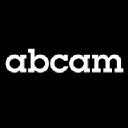Companies
Discover all trending biotech companies
Discover all trending biotech companies

Company Research Platform
Annual Revenue
$ 350,400,000
Global Employees
1,100
This segment focuses on the development, production, and distribution of a comprehensive portfolio of antibodies, proteins, kits, and reagents for life science research. Research and development activities include antibody discovery, validation, and characterization using various technologies like recombinant antibody production, phage display, and hybridoma technology. These products are used across diverse therapeutic areas, including oncology, immunology, and neuroscience, to study protein targets and pathways. The segment's impact is significant, enabling researchers to advance drug discovery, diagnostics, and basic research. Abcam's market positioning is strong, being a leading supplier with a wide product range and strong brand recognition. Future opportunities include expanding the product portfolio, developing new applications, and leveraging partnerships to enhance market reach. Regulatory aspects are crucial, with products needing validation and compliance with industry standards. Collaborations with research institutions and biotechnology companies are key to innovation and market expansion.
This segment encompasses the development and commercialization of tools and technologies for proteomics and immunology research. R&D efforts focus on developing advanced assays, kits, and services for protein analysis, including ELISA, IHC, and flow cytometry. Technologies employed include protein engineering, conjugation, and assay development. The segment supports research in various therapeutic areas, such as cancer, infectious diseases, and autoimmune disorders, by providing tools to study protein expression, interactions, and function. The impact is substantial, as these tools enable researchers to understand disease mechanisms and identify potential drug targets. Abcam's market position is strengthened by its acquisition of Expedeon's Proteomics and Immunology business, expanding its conjugation capabilities. Future opportunities include expanding into new areas of proteomics and immunology research, developing innovative assay formats, and forming strategic partnerships. Regulatory compliance is essential for diagnostic applications. Collaborations with academic and industry partners are vital for technology development and market access.